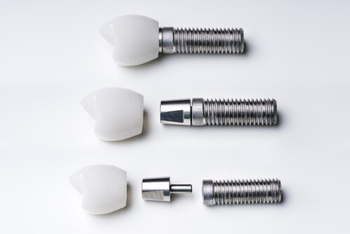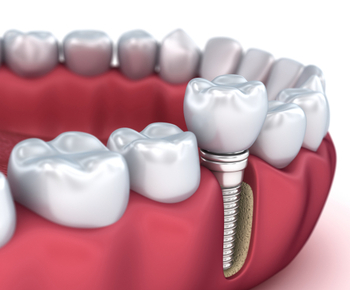A smile can speak volumes. It’s the universal sign of joy, welcoming gestures, and silent yet potent communication. For many, a smile with a set of gleaming teeth represents confidence. So, what happens when one or more of those teeth go missing? It can reduce confidence, change our expression, and even affect our oral health. Dental implants have become the gold standard for restoring that lost smile in today’s advanced dental world. They’ve been heralded as the closest thing to natural teeth, granting individuals the freedom to laugh, eat, and speak without inhibition.
The curiosity surrounding dental implants in Turkey and the ever-reliable and high standards of Australian healthcare presents a compelling dialogue. Let’s dive in and get to the heart of this matter. We’ll explore the subtle differences, weigh the pros and cons, and shine a light on your choices’ financial and overall impacts. Whether you’re missing a tooth from a mishap, wear and tear, or the passage of time, knowing your options will help you choose what’s best for you. So, as we journey from the bustling streets of Istanbul to the serene coasts of Sydney, let’s uncover the world of dental implants and determine the best path for your oral health journey.
The Appeal of Dental Implants in Turkey

A tourist and scenic area might carry lower prices for getting dental implants, Turkey, for example. Undoubtedly, the allure of dental implants surgery in exotic places like Turkey stems from various attractive factors. The dental treatment costs in Turkey are significantly lower, making the journey a cost-effective choice for many. In cities like Istanbul and Izmir, dental clinics boast of state-of-the-art infrastructure and modern technology.
Most of these clinics can perform dental implant surgery swiftly, which means patients can combine their medical procedures with a brief vacation in the historic nation. Such an experience ties the benefits of dental tourism with the necessity of the treatment.
Advantages of Getting Dental Implants in Australia
Our decisions are paramount when it comes to health and well-being, especially in something as essential and prominent as one’s smile. While the temptation to save money and combine a dental procedure with an overseas holiday is alluring, evaluating the long-term advantages and repercussions of such choices is critical. Australia holds several distinct advantages over its counterparts in the vast and intricate realm of dental implants. Here’s a deep dive into why choosing Australia might be the best course of action for those considering dental implants.
World-renowned Dental Standards
Australia is globally acclaimed for its high medical and dental care standards. The dental implant procedures in the country adhere to the strictest international standards, ensuring that patients receive top-notch care every step of the way. From the preliminary consultation to the post-operative follow-ups, the Australian dental system is meticulously structured to ensure patient safety and satisfaction.
Comprehensive Local Follow-up Care
Post-implant care is as vital as the implant surgery itself. The body’s response to a new implant, adjustments in bite, and any unforeseen complications require careful monitoring. Being local means easy access to your dentist for these crucial post-procedure checks. Addressing any immediate issues or long-term complications with your dental implant is simply scheduling an appointment rather than coordinating an international trip.
Familiar Regulatory Framework
Stringent regulations govern the Australian dental sector. These rules dictate the qualifications and ongoing training of practitioners and the tools, techniques, and dental implant brands used in procedures. Such a robust regulatory framework provides an additional layer of assurance to patients. They can rest easy knowing that they are protected by a system prioritising their health and safety.
Seamless Communication
One significant advantage that often goes unnoticed is the absence of any language barrier. Communication is integral to any medical procedure. Having the ability to fully understand the dental implant procedure, its intricacies, potential risks, and aftercare in one’s native language is invaluable. It instils confidence and ensures that the patient can follow post-operative care instructions to the letter, leading to better outcomes.
Building Long-term Relationships
There’s an inherent comfort in being treated by someone familiar, someone who understands your medical history and your unique concerns. Patients can foster a lasting relationship with their dentists by opting for dental implants in Australia. Over time, this rapport can lead to more personalised care as the dentist becomes more attuned to the specific needs and preferences of the patient.
Local Guarantees and Insurance Collaborations
The dental implant prices are undeniably a significant consideration. Many Australian dental clinics offer guarantees or warranties on their work. If an issue arises within a stipulated period, the clinics are bound to address it without extra charges. Furthermore, numerous local insurance providers have tie-ups with Australian clinics, offering coverage for dental implant treatments. This integrated approach can dramatically reduce the financial burden of the procedure.
Embracing the Latest in Dental Innovations
Regarding dental advancements, Australia stands tall, always embracing the newest technologies and methods. Think 3D imaging and ultra-modern surgical techniques – that’s what’s on offer here. And it’s not just about having these tools. Our dental professionals are continually learning, ensuring they’re always at the cutting edge of implantology.
Seeing the Bigger Picture in Dental Care
In Australia, dental care isn’t just about fixing a specific problem. Our clinics take a broad view of your overall health and well-being. They’ll delve into how your medications might interact with dental implant procedures and even tailor treatments based on your general health. It’s a thorough, all-encompassing approach.
The Assurance of Top-tier Materials
When discussing something as significant as a full mouth of dental implants that will be a part of you, you want to ensure the materials’ quality. And in Australia, it’s not just a wish. Our regulations ensure that only the best, most compatible materials are used for dental implants. This focus not only ensures durability but also significantly reduces complications.
The Comfort of Familiarity
It might seem trivial, but there’s a lot to be said about the peace of mind that comes from being treated in a place you know, surrounded by your loved ones. Medical procedures, including routine ones like dental implants, can be nerve-wracking. Being home in Australia, with your support network just around the corner, is a massive boon for many.
Now, while the allure of dental vacations to places like Turkey is understandable, it’s crucial to see the bigger picture. Dental implants aren’t just about filling the missing tooth. They’re a gateway to renewed confidence, seamless functionality, and a better quality of life. With its patient-first ethos, top-notch standards, and strict rules, Australia sets the scene for a dental implant experience filled with assurance and tranquillity. So, when weighing options, it’s not just about upfront dental implant costs. Think about the lifelong value and the peace of mind of choosing an Australian solution for your dental implant journey.
Risks Associated with Overseas Dental Treatments
In the age of globalisation and the internet, borders have seemingly dissolved, especially in commerce and tourism. The healthcare industry isn’t an exception. Medical tourism, including dental tourism, has witnessed a rapid rise. Countries like Turkey, Thailand, and India have become prominent destinations for those looking to combine leisure travel with cost-effective medical procedures.
However, while the attraction of getting dental treatment overseas often comes with the promise of reduced costs and a vacation to boot, there are inherent risks associated with this choice. Below, we delve into the potential complications and concerns accompanying the decision to pursue dental treatments abroad.
Varied Regulatory Standards
Australia has one of the strictest and most comprehensive regulatory frameworks governing its medical and dental sectors. Patients might be stepping into countries with significantly different regulations when venturing overseas. This difference can impact the quality of care, the materials used, and even the sterilisation standards. While many overseas clinics maintain high standards, the variability is undoubtedly greater, making it essential for individuals to conduct thorough research before committing.
Communication Barriers
Understanding the nuances of a procedure, the potential complications, and the aftercare recommendations is critical for any medical treatment. In countries where English isn’t the primary language, miscommunications can occur. Misunderstandings about the dental implant procedure, post-operative care, or medication instructions can lead to suboptimal outcomes or complications.
Quality and Origin of Dental Materials
While cost savings can be significant when opting for dental treatments abroad, there’s a question – how do these clinics offer such reduced rates? One possible reason could be using less expensive and potentially lower-quality dental materials in the mouth. Dental implant treatments conducted with these materials might not meet the stringent standards set by Australian health authorities. For instance, the quality of dental crowns, dental implants, or the composites used for fillings can vary widely.

Limited Access to Follow-up Care
One of the pivotal aspects of dental procedures, especially surgeries like dental implant treatments, is follow-up care. These follow-up appointments ensure that the patient is healing well, has no infections, and the implants integrate properly with the bone tissue. When the procedure is done thousands of kilometres away, accessing this essential follow-up care becomes a logistical challenge, often resulting in neglect or additional expenses for local consultations.
Potential Complications During Travel
Travelling post-surgery could be better. The strain of long flights, potential exposure to infections, and the physical exhaustion of travel can hamper recovery. Moreover, any immediate post-operative issues that arise during travel can be challenging to address without immediate access to the operating dentist.
Absence of Recourse
In Australia, if a dental treatment doesn’t go as planned or complications arise, patients have clear avenues for recourse, including legal options. This assurance might be limited in other countries. Navigating foreign legal systems can be complex, expensive, and time-consuming, especially in medical malpractice scenarios.
Incompatibility with Local Treatments
Every dentist has their preferred methodologies, materials, and techniques. An overseas dental procedure might employ methods or materials unfamiliar to local dentists. Should complications arise upon return to Australia, local dentists might find it challenging to address the issue without knowing the specifics of the overseas procedure.
Hidden Costs
While the upfront costs of overseas dental treatments might seem attractive, there can be hidden expenses. These can include costs for additional procedures, extended stays due to unforeseen complications, or even the need for corrective treatments back home.
Cultural Differences in Medical Care
Different countries have distinct cultural approaches to medical care. The patient-doctor relationship, the approach to pain management, and even the general clinic environment can vastly differ from what Australians are accustomed to. These differences can impact the patient’s comfort and overall experience.
Risk of Infectious Diseases
While this isn’t limited solely to dental treatments, it’s essential. Different countries have different prevalent infectious diseases. With the necessary vaccinations or precautions, individuals might avoid exposing themselves to health risks beyond the dental procedure.
The allure of combining a picturesque holiday with affordable dental treatment is undoubtedly tempting. However, the decision to undertake dental procedures, especially complex ones like dental implants, shouldn’t be taken lightly. It’s a long-term investment in health, functionality, and appearance. While many have had successful treatments overseas, being fully aware of the potential risks is crucial.
By understanding these risks, potential dental tourists can make informed decisions. The savings may be worth it, or the assurance of local, familiar, and reliable care in Australia carries greater weight. Whatever the choice, knowledge is the key to ensuring a positive and healthy outcome.
A Closer Look: Dental Procedure in Australia
Australia’s reputation in the medical and dental arena is impeccable. It’s a nation synonymous with cutting-edge technology, rigorous regulatory standards, and a patient-centric approach to care. As dental health plays a pivotal role in one’s overall well-being and quality of life, understanding the intricacies of undergoing a dental procedure in Australia is essential. Here, we delve deep into what one can expect.
Comprehensive Consultation
The journey begins with an in-depth consultation before any dental procedure, whether it’s a simple filling or a complex dental implant surgery. Australian dentists place a significant emphasis on understanding the patient’s history, concerns, and desired outcomes. It’s a dialogue where the patient is encouraged to share, inquire, and understand the nuances of the proposed treatment.
Advanced Diagnostic Procedures
Modern dentistry is about more than just addressing visible issues. It’s about identifying underlying problems, potential complications, and planning for the best possible outcomes like bone grafting. Australian dental clinics often have the latest diagnostic tools – from 3D dental imaging to advanced X-rays. Such equipment ensures accurate diagnoses and precision in treatments.
Personalised Treatment Plans
Every individual is unique, and so are their dental needs. Australian dentists take pride in crafting personalised treatment plans with a different implant brand for each plan. For instance, a dental implant treatment would consider factors such as bone density, the position of adjacent teeth, the upper jaw, and even the patient’s bite. The aim is to ensure functionality, longevity, and aesthetics.
Emphasis on Patient Comfort
Dental anxiety is real, and Australian dental clinics recognise this. Efforts are made to create a calm, serene environment. Many clinics offer sedation dentistry for those particularly nervous about procedures, ensuring the patient’s experience is as comfortable and stress-free as possible.
Use of Quality Materials
Australia’s strict regulatory standards extend to the materials used in dental procedures. Whether it’s the ceramic used in a dental crown or the titanium in a dental implant, patients can rest assured they receive biocompatible, high-quality materials designed for durability and safety.
Focus on Preventative Care
While addressing existing dental issues is essential, Australian dentistry’s approach is heavily skewed towards prevention. Regular check-ups, cleanings, and patient education sessions are integral to the dental care regime, ensuring potential problems are nipped in the bud.
Post-Procedure Support
The relationship between a patient and a dentist doesn’t end when the procedure is completed. There’s a robust framework for post-operative care, ensuring that the patient’s recovery is on track. This follow-up care is pivotal, from managing any discomfort to ensuring the success of a procedure like a dental implant.
Transparent Pricing
Financial considerations are crucial for most patients. Australian dental clinics are often upfront about costs, ensuring no hidden surprises. While the costs might seem higher compared to overseas options, the value derived from the high standards of care, quality materials, and post-procedure support often justifies the investment.
Continuous Professional Development
The field of dentistry is ever-evolving. New techniques, tools, and methodologies are continually emerging. Australian dentists are committed to continuous learning, ensuring they’re abreast of the latest developments. This commitment to professional growth directly benefits the patients, who receive care that aligns with global best practices.
Emphasis on Holistic Health
Modern Australian dentistry recognises that oral health isn’t an isolated aspect of well-being. There’s a growing focus on understanding the interplay between dental and overall health. For instance, the correlation between gum diseases and cardiovascular health is a topic that’s often discussed, ensuring patients are aware of the broader implications of their dental health.
Long-Term Costs: The Hidden Expenses of Overseas Dental Procedures
It’s easy to be attracted to the allure of reduced upfront costs for dental treatments abroad. On the surface, the prices for procedures such as teeth implants in destinations like Turkey can be substantially lower than those in Australia. However, as with many things in life, it’s crucial to look beyond the initial price tag and consider the broader picture.
Follow-Up Treatments and Maintenance
A dental procedure doesn’t end with the surgery or treatment. Regular follow-up appointments are essential to monitor recovery, ensure the successful integration of dental implants, or address any potential complications. When your dentist is in another country, these follow-ups can become logistically challenging and expensive, often necessitating local consultations, which can accrue additional costs.
Complications and Corrections
If complications arise or if a patient isn’t satisfied with the outcome of an overseas dental procedure, addressing these issues becomes complex. Undergoing corrective procedures in Australia to amend overseas work can often be costlier than if the original procedure had been done domestically. Local dentists might need to invest extra time to understand overseas methodologies or materials before making corrections.
Travel and Accommodation Expenses
The costs associated with flights, accommodation, and other travel-related expenses can quickly add up, particularly if one has to return for follow-ups or unplanned corrections. While it might initially seem like a combined holiday and dental procedure, the expenses can soon mirror or even exceed local treatment costs.
Potential Lost Wages
Travelling for dental procedures might require extended time off work, especially when considering recovery periods. When factored into the overall costs, this loss of income can make overseas treatments less economical than they first appear.
Insurance Implications
Many Australian health insurance providers might not cover complications arising from overseas treatments. Any additional treatments or hospital visits to an overseas procedure could be out-of-pocket expenses.
Dental Warranties: The Australian Guarantee
Australia prides itself on its robust consumer protection framework; the dental sector is no exception. When patients invest in dental procedures, particularly significant investments like dental implants, they’re not just paying for the procedure itself but for the assurance of quality and recourse.
Rigorous Accountability Standards
Australian dental clinics operate under stringent regulatory standards. These ensure that the clinic is accountable if a treatment doesn’t meet the expected outcomes. Patients have clear avenues for feedback, corrections, and, if necessary, legal recourse.
Comprehensive Warranties
Many Australian dental clinics offer warranties on dental implant procedures. These warranties ensure that if an implant fails within a specific period (often several years), the clinic will replace or correct it at minimal or no cost. This guarantee provides peace of mind to patients, ensuring they’re protected from additional costs.
Assurance of Quality Materials
The warranties offered in Australia are backed by confidence in the materials’ quality. Dental implants, crowns, and related components in Australia adhere to rigorous quality standards, ensuring longevity and compatibility.
Transparency in Terms and Conditions
The warranties provided by Australian dental clinics come with clear terms and conditions. These are often discussed upfront with the patient, ensuring they understand the extent of the coverage and any associated responsibilities on their part.
Easy Access for Addressing Concerns
Patients can easily access their local clinics for assessments and corrections if any issues arise within the warranty period. There’s no need for international travel or dealing with foreign clinics, which might not be as readily accessible or responsive.
Financial Security
Warranties act as a financial safeguard. In the unlikely event that a dental implant fails or a related complication arises, the dental clinic or their insurance generally bears the associated costs of rectification, ensuring patients don’t face unexpected financial burdens.
Conclusion
Navigating the realm of dental treatments can be daunting, especially when confronted with the myriad of options available both domestically and abroad. While overseas destinations might seem appealing due to their initial cost savings, recognising the long-term value, assurances, and peace of mind offered by Australian dental clinics, such as Glenferrie Dental, is essential. With a dedication to quality, patient-centric care, and backed by comprehensive warranties, the choice becomes clear.

Your dental health is a lifelong investment. Please don’t leave it to chance or short-term savings. Choose quality, reliability, and a clinic in your best interests.
If you’re considering full mouth dental implants or any other dental procedure, we invite you to experience the Glenferrie Dental difference. Have questions, or are you ready to embark on your dental journey? Contact Glenferrie Dentist Hawthorn today at (03) 9818 1930. Our expert team is ready and eager to assist, ensuring you make informed decisions about your dental health.
References:
https://www.ncbi.nlm.nih.gov/books/NBK470448/
https://my.clevelandclinic.org/health/treatments/10903-dental-implants
